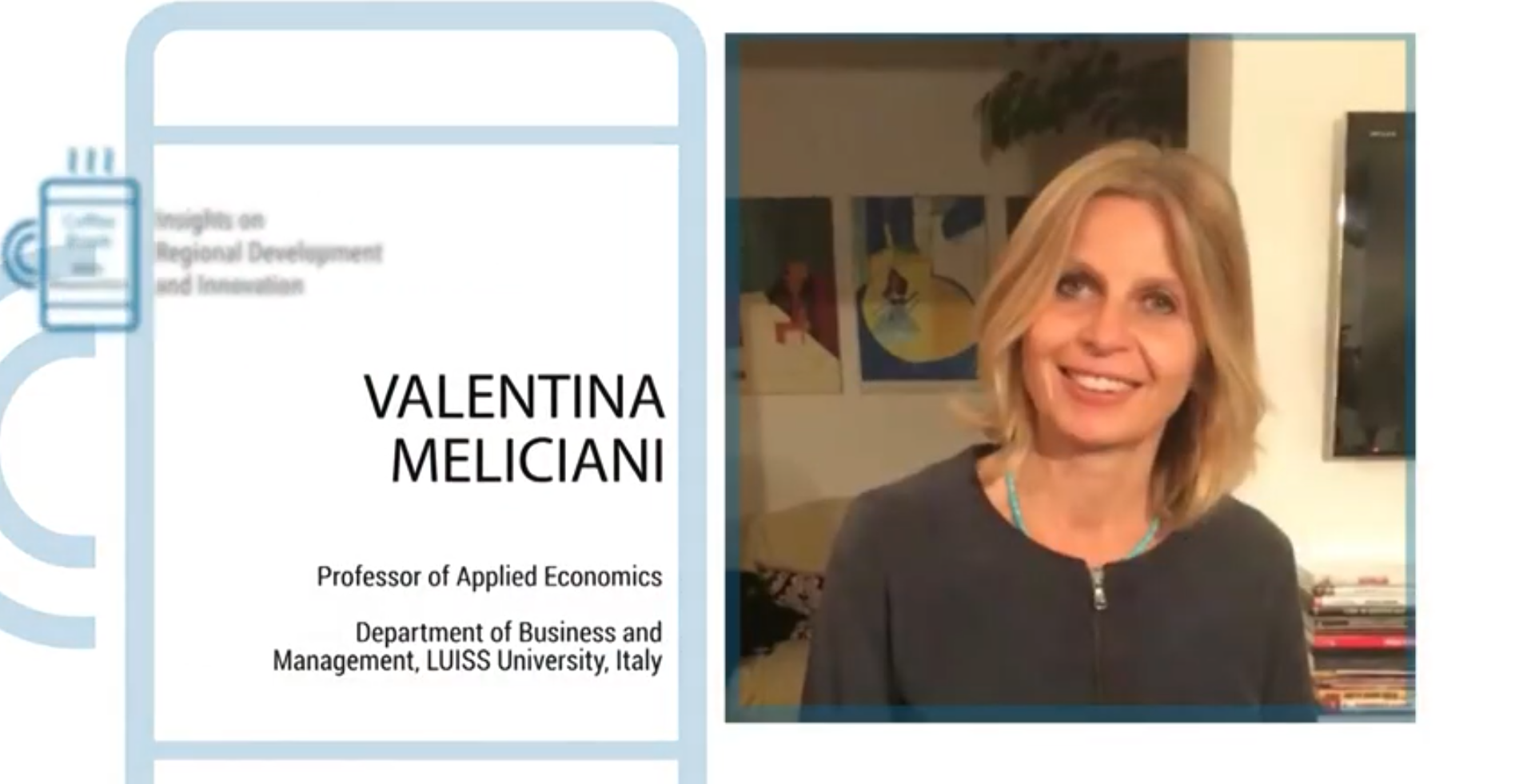The article
This paper investigates the role of knowledge-based capital for participation and value appropriation in global value chains (GVC) for a sample of European countries over 1995–2011. We distinguish between different forms of participation in GVC entailing a different degree of capability to create value added domestically and examine how different intangible assets contribute to countries’ engagement and value appropriation in GVC. We find that knowledge-based capital is positively correlated with participation and value appropriation along the value chain. This finding is robust to introducing separately R&D and non-R&D intangibles. In particular, training and organizational capital have the largest positive effect on value appropriation.
Jona-Lasinio, C., Manzocchi, S., & Meliciani, V. (2019). Knowledge based capital and value creation in global supply chains. Technological Forecasting and Social Change, 148, 119709.
The researcher
Valentina Meliciani
Professor of Applied Economics
Department of Business and Management, LUISS University, Italy
The interview
I want to talk with you about the paper you wrote, in which you investigate the role of knowledge- based capital for participation and value appropriation in global value chain. Could you please tell me what the paper was about?
yes so first of all let me just tell something about knowledge-based capital so it is a quite a broad concept, it starts from R&D research and development but it is much more inclusive so we are studying the impact of many different assets that are related to knowledge including for example design, including organizational capital, training and branding and how they contribute to allow countries and industry to take part in the international division of labor and especially in value appropriation, so the idea is that while it could be easy to participate in global value chains, not all countries not all firms will gain from this participation and there will be an even distribution of gains that will be strongly related to the ownership of intangible assets or knowledge-based capital so this is the main idea of the paper.
So could you please define the key notion of knowledge-based capital for me?
yes there are all those assets where the you basically use knowledge and you create knowledge at the same time so as in the case of organizational capital uh or in the case of design so they are all assets that are not the physical normal assets that the literature has or investigated more in the past like equipment or infrastructure but they are more related to intangible investment.
And which ones are your main findings?
The main findings are that across Europe we were looking at especially advanced countries there is a very uneven distribution of these intangible assets and the countries that invest more in this kind of capital are able to take part to global value chains and especially to gain in terms of the amount of value added that is created in the value chain that goes to that particular country and therefore it’s really important to carry out that type of investment.
I am also interested in the personal motivation that drove you to write this paper
I come from studies on innovation, I was doing my PhD several years ago in SPRUE University of Sussex so I’ve been studying for a very long time the role of innovation for economic growth for international competitiveness then I met Cecilia Jona Lasinio and Stefano Manzocchi that is a co-author of this of this paper that has a long experience in the measurement of intangible assets, she has been working with a Carol Corrado on international projects and they were producing these very new and interesting data that were making it possible to have a measurement of these assets that was not available before and so this motivated our research.
Very interesting thank you for sharing and finally could you please tell me key
policy implications of your paper?
yeah the key policy implications are especially :we were highlighting the the situation of some mediterranean countries like our country for example Italy but also Spain, Greece uh that if you look at the statistics over time they have not uh followed the other country to the same extent in investing in this kind of of capital the intangible capital and these countries have lost a lot in terms of labor productivity and even if they participate in global value chain they are really not able to benefit too much from this participation so the policy implication is that we should find some policy tools allowing, stimulating private and public investment in this kind of assets if we want to relaunch productivity and gains from participation in global value chains in these countries.
That’s indeed very important and thank you very much for those insightful findings and for explaining them, and thank you once again for having the chat this nice chat with me and I wish you all the best for your future research
thank you very much, thanks a lot thank, you for watching, if you’re interested in more details about this academic publication you can find here the link below see you next time bye-bye.

